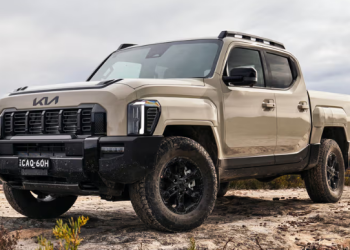Avoid scams when buying used cars in South Africa by staying alert and following these key tips:
- Inspect the car in person: Always see and test-drive the vehicle before making any payments.
- Verify documents: Check the VIN, registration papers, service history, and ensure the seller is the registered owner.
- Avoid upfront payments: Never send money before inspecting the car or meeting the seller.
- Be cautious of low prices: Deals far below market value are often scams.
- Spot red flags: Poor grammar in messages, sellers avoiding phone calls, or insisting on untraceable payment methods like Western Union.
Stay safe by meeting sellers in well-lit public places, using traceable payment methods, and trusting your instincts. If it seems too good to be true, it probably is.
Don’t Get Scammed Buying a Used Car – 12 Buying Tips …
Top Used Car Scams in South Africa
Scammers often use three main tricks to deceive buyers: fake documents, cloned vehicles, and recall scams.
Fake Documents and Service Records
Some sellers forge service books to hide signs of poor maintenance. They may promise to provide missing records after payment, but these promises often go unfulfilled. If a seller has incomplete or suspicious paperwork and offers vague excuses, it’s best to walk away.
Stolen Cars and Cloned Vehicles
Organized theft rings clone stolen cars and sell them to unsuspecting buyers, often through low-priced listings that cross borders. Another scam to watch for is the recall scam. Criminals pretend to be representatives of car manufacturers and trick owners into handing over their vehicles. Maanda Tshifularo, head of Dialdirect Insurance, explains:
"Criminals execute a recall scam by contacting unsuspecting vehicle owners and posing as officials representing a car manufacturer, convincing the owners that their vehicle is part of a batch being recalled due to serious malfunctions"
Once stolen, these cars are often cloned and resold locally or smuggled into neighboring countries for sale.
For example, in July 2021, a buyer in Mpumalanga fell victim to an online auction scam. Fraudsters pretended to be a legitimate auctioneer, convinced the buyer to pay a 50% deposit for a car priced far below market value, and then attempted unauthorized transactions on the victim’s bank account.
Up next, find out how to recognize these scams before making any payments.
How to Spot Scam Warning Signs
Stay alert to these red flags before making any payments.
Payment and Document Warning Signs
Scammers often give themselves away with odd payment demands. Be cautious if a seller:
- Requests payment through Western Union or similar money-transfer services
- Mentions a mysterious third party holding funds "in trust"
- Insists on full payment or a deposit before you can inspect the vehicle
"There is no such thing as a bargain anymore… People must also stop handing over their money before they have evaluated the institution selling the product and have seen and inspected the item they want to purchase."
Pay attention to these behaviors when dealing with sellers.
Telltale Signs of Dishonest Sellers
- Communicates only via email and avoids phone calls
- Offers prices far below market value, often paired with emotional stories (e.g., "widow selling")
- Uses only mobile phone numbers or generic email addresses like Gmail
- Claims vehicles are reserved for auction or rent-to-buy options – legitimate auctioneers don’t reserve vehicles outside of bidding, only collect refundable registration deposits, and never charge viewing fees
- Posts listings or messages riddled with spelling and grammar mistakes
These tips can help you identify potential scams. Up next, we’ll outline a five-step guide to safely buying a used car.
sbb-itb-09752ea
5 Steps to Buy a Used Car Safely
Here’s how to make sure you’re protected when buying a used car. Follow these five steps to minimize risks and make a smart purchase.
Finding Legitimate Sellers
- Look up dealer reviews on platforms like Google, Facebook, and Hellopeter. Be cautious of listings with inconsistent details, broken websites, unanswered calls, or requests for deposits before a test drive.
- A legitimate dealer should have a clean showroom, and the vehicles on display should match the details advertised.
- Make sure the listed price is in line with current market values.
Checking Car Papers and History
Before committing, review the car’s documentation carefully:
- Vehicle Identification Number (VIN): Check that the VIN on the chassis and windshield matches the registration papers and the roadworthy certificate.
- Documentation Package: Always ask for original documents, including the Natis papers, full service history, and a valid Road Worthy Certificate. Confirm that the seller is the registered owner of the vehicle.
Keep in mind: If the car turns out to be stolen, even if you bought it in good faith, authorities can confiscate it. Additionally, if there’s outstanding finance on the car, the lender can still demand payment from you.
Getting the Car Checked
Thorough inspections are key to avoiding surprises:
- Exterior and Interior: Look for signs of damage on the body and paint, check the upholstery for tears, and test all accessories like lights, infotainment systems, and the spare tire. Take note of any issues.
- Mechanical Assessment: Start the engine and listen for unusual noises. Check underneath for leaks, monitor the temperature gauge, and ensure the steering, brakes, and gear shifts work smoothly.
- Test Drive: During the test drive, adjust the seats and mirrors, brake firmly from 37 mph to check stability, and watch for any warning lights. Test the air conditioning, infotainment system, and cargo space.
Once you’ve completed these steps, you’ll be ready to compare buying methods and make an informed decision.
Safe vs. Risky Buying Methods
Let’s break down how secure buying methods compare to risky ones. Knowing these differences can help you avoid scams and protect your money.
Safe methods are designed to safeguard your purchase, while risky methods leave you vulnerable to fraud. Here’s a closer look:
- Safe: Meet at dealerships or well-lit public places during the day, confirm the seller’s identity, and thoroughly inspect the vehicle.
- Risky: Meet in isolated areas at night, rely on verbal promises, or skip inspections altogether.
- Safe: Use bank transfers after a proper inspection, keep all paperwork, and verify the vehicle’s VIN.
- Risky: Make advance payments, rely on untraceable money transfers, or accept incomplete documentation.
- Safe: Arrange independent mechanical checks, research the vehicle’s market value, and document all interactions.
- Risky: Purchase without seeing the car, make rushed decisions due to pressure, or skip comparing prices.
Watch for these red flags that could indicate a scam:
- Sellers unwilling to take phone calls or provide a landline number.
- Adverts or messages riddled with poor grammar and spelling.
- Demands for deposits before you’ve seen or test-driven the car.
"If it looks too good to be true, it usually is, and fraud schemes often begin with a hoax car at a bargain price."
Use this comparison to follow safe practices and avoid fraud. Up next, we’ll summarize the key points for scam-free car buying.
Conclusion
By following the steps outlined, you can protect yourself from scams when buying a used car in South Africa. Keep these tips in mind to ensure a safer transaction:
- Always inspect and test-drive the car in person before making any payment.
- Stick to secure and traceable payment methods after completing your inspection.
- Take your time, trust your gut, and avoid rushing into decisions.
- Be cautious of deals priced far below the market average.
- Avoid sellers who insist on untraceable payment methods like Western Union.
- Pay attention to poor spelling or grammar in messages, as it can be a red flag.
Staying alert and following these precautions will help you navigate the car-buying process with confidence.
Related posts
- New vs Used Cars: Key Pros and Cons
- 10 Tips to Avoid Car Scams in South Africa
- Online Car Trading: Common Scams Explained
- Where to buy safe used cars in South Africa





